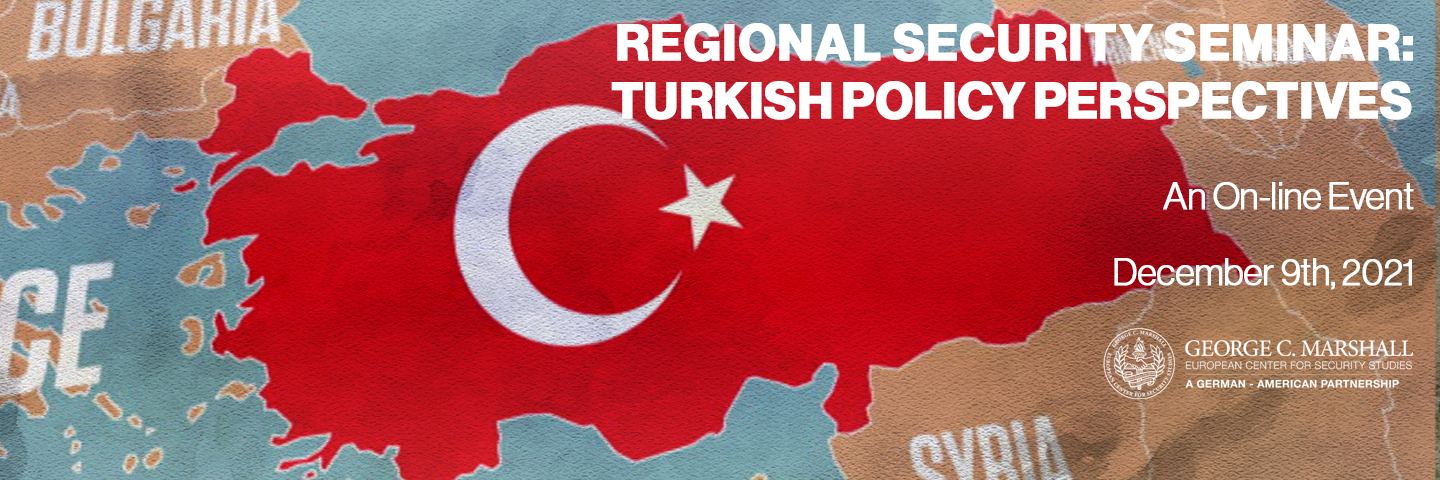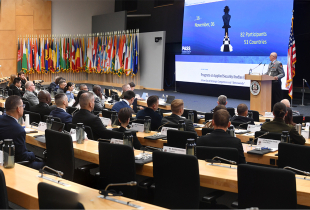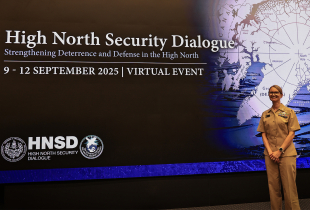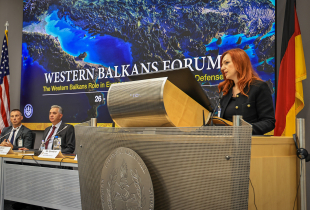
Marshall Center Hosts Regional Security Seminar on Turkey
By Dr. Cueneyt Gurer & Dr. Katrin Bastian
College of International and Security Studies
George C. Marshall European Center for Security Studies
GARMISCH-PARTENKIRCHEN, Germany (Dec. 16, 2021) – The Marshall Center organized an online seminar to explore Turkey’s foreign and security policy perspectives, focusing on three major issue areas: Turkey’s relations with the EU and the U.S., Turkey’s relations with Russia, and Turkey’s posture in the Middle East.
With its geographical position, political and cultural blend, Turkey has long been seen as a country that bridges the East and the West. However, Turkey has been going through substantial foreign and security policy changes for at least a decade, and its domestic issues are inextricably linked to its regional and foreign policy activities.
Dr. Toni Alaranta, Finnish Institute of International Affairs, Dr. Daria Isachenko, German Institute for International and Security Affairs, and Dr. Osman Bahadir Dincer, Bonn International Center for Conflict Studies, examined each of Turkey’s relationships, thereby drawing an in-depth portrait of Turkey’s foreign policy orientation today and in the past.
Highlights from these non-attribution conversations emerge from group discussion and do not represent the views or positions of any individual panelist or participant; they do not represent the official policy of the United States, Germany, or any other government.
Key takeaways from their lectures and the ensuing non-attribution discussion include:
- Turkey’s relations with the West have deteriorated due to Ankara’s securitization of its foreign policy.
- Turkey’s policy choices in the past have created fractures in its relations with the West, resulting in sanctions imposed by the EU and the U.S. Starting from Nov. 2020 Turkey’s President Erdogan showed signs of willingness to reduce the tensions and open up a new chapter in the country’s relations with the West. However, these attempts remained half-hearted as they lacked a functioning institutional follow-up mechanism necessary to lead to political normalization. The EU, for its part, demonstrated “strategic patience” in its relations with Turkey, assuming that Ankara would reduce some of the tensions in the medium term. Turkey continued with its realist approach towards regional politics, albeit with less noise and provocations.
- Turkey-Russia relations are stable based on a complex model of reciprocity.
- Turkey and Russia have developed interdependent relations in Syria over time which was interpreted as a result of personal chemistry between the Presidents of the two countries. Personal relations between the two leaders play a secondary role as both countries have a significant interest to keep the balance in their relations. Arguments favoring Russia as an alternative to Turkey’s relations with the West miss the point in that Russia cannot offer the same level of advantages to Turkey on issues related to Turkey’s national interest. At the same time and from NATO’s point of view, Turkey’s potential to balance Russia’s influence in regional crises can be viewed as too optimistic - given the dominant posture of Russia in the Syrian conflict after 2015. All in all, the Turkish-Russian relationship is characterized by a complex net of mutual recognition of priorities and mutual beneficial cooperation with a future perspective.
- Absence of a long-term strategy in the Middle East created more problems than advantages for Turkey.
Turkey used to display a soft power approach towards the Middle East, based on ideological similarities between the AKP government and groups affiliated with the political interpretation of Islam in the region. The Arab spring and the Syrian conflict marked a shift towards a more militarized regional policy which in turn had repercussions in Turkey’s domestic policy. The re-orientation of Turkish foreign policy caused the redesign of several state and security institutions, as they had to adapt to increased military investment, the introduction of new military technologies, and the deployment of private security companies and proxies in regional conflicts. In sum, Turkey moved from its vision of “zero problems with neighbors” to a “zero friends in the neighborhood” situation.
Policy experts and participants of the seminar also discussed future policy options of Turkey related to major security issues in its region. The seminar contributed to the understanding of the political, social and economic backgrounds of Turkey’s policy choices and how they connect with regional security developments.


